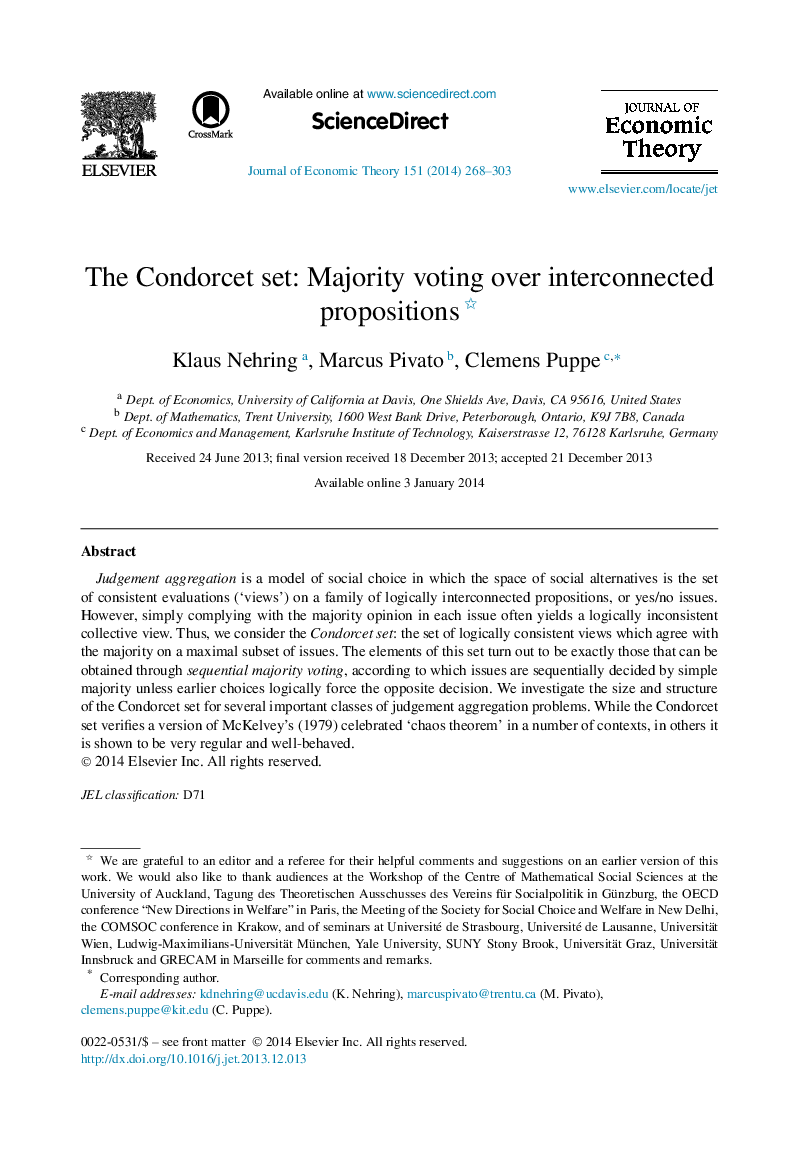| Article ID | Journal | Published Year | Pages | File Type |
|---|---|---|---|---|
| 957013 | Journal of Economic Theory | 2014 | 36 Pages |
Judgement aggregation is a model of social choice in which the space of social alternatives is the set of consistent evaluations (‘views’) on a family of logically interconnected propositions, or yes/no issues. However, simply complying with the majority opinion in each issue often yields a logically inconsistent collective view. Thus, we consider the Condorcet set: the set of logically consistent views which agree with the majority on a maximal subset of issues. The elements of this set turn out to be exactly those that can be obtained through sequential majority voting, according to which issues are sequentially decided by simple majority unless earlier choices logically force the opposite decision. We investigate the size and structure of the Condorcet set for several important classes of judgement aggregation problems. While the Condorcet set verifies a version of McKelvey's (1979) celebrated ‘chaos theorem’ in a number of contexts, in others it is shown to be very regular and well-behaved.
